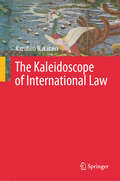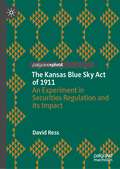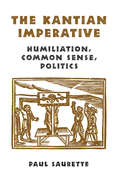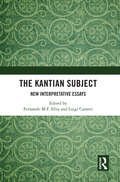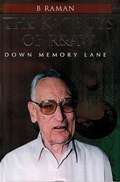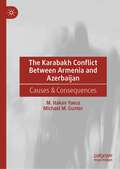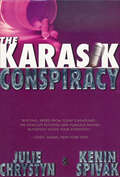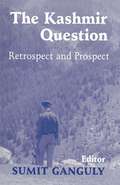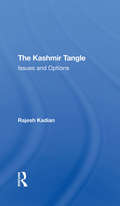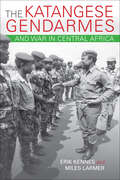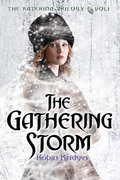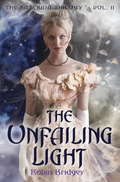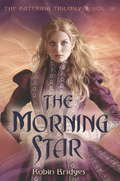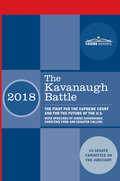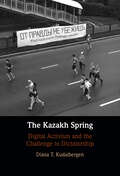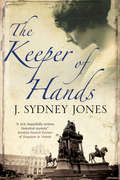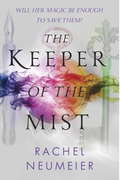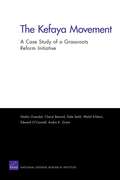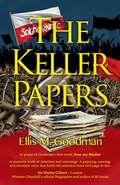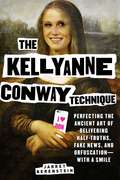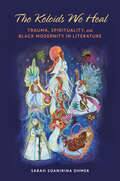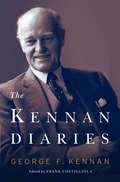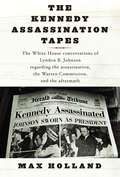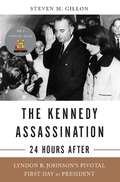- Table View
- List View
The Kaleidoscope of International Law
by Kazuhiro NakataniThis book is a collection of updated and enhanced versions of the author's articles published in English over the past 30 years. It covers a wide range of areas and deals with many practical problems of international law which, despite their diplomatic importance, have been neglected by academics. For example, the book explores the applicability of negotiorum gestio to the planetary climate crisis, international legal problems between sovereign wealth fund holders and recipients, and the possibility of using the frozen assets of the Russian Central Bank. Through joint research and discussions with diplomats and government officials, the author came to realise that what really matters in diplomacy is different from what academics are interested in. On the basis of this conviction, he has included here articles which he considers useful not only for the academic study of international law but also for diplomatic practice. This book covers broad areas of international law and also touches on Japanese ideas of international law.
The Kansas Blue Sky Act of 1911: An Experiment in Securities Regulation and its Impact
by David RessThis Palgrave Pivot presents the first in-depth study of the pioneering Kansas Blue Sky Act of 1911, the first effort in American financial history to regulate the sale of securities in the US. Though offering a balanced examination of critiques of the legislation as a barrier to individual liberty, interstate commerce, and economic growth, the author challenges the prevailing view of the Kansas Act as a complete anomaly, instead exploring sensitively what ‘blue sky laws’ can tell us about small-town market values during the nineteenth-century. Drawing on contemporary accounts of rural commerce and popular stereotypes about rural society, the author takes a cultural-historical approach to the politics of regulation and government intervention in the economy. Situating the Blue Sky Act in the broader context of Progressive Era reforms, the author demonstrates how distinctive patterns of commerce and finance in the self-contained, miniature economies of mid-continental rural communities were often at odds with the “caveat emptor” (buyer beware) standard of American law and commerce in larger markets. Instead the author explores how paternalistic assumptions about individual investment decisions led to the creation of the Act, yet how it was doomed to failure in the context of emerging national stock markets, changing attitudes that regarded stock primarily as a vehicle for trade and the market boom of the 1920s. The book also explores how the initial acceptance of the Kansas model in other states and its later rejection provides a lens through which to examine the fluidity of notions of individual liberty during this period of fast economic and social change. This book will be of interest to researchers working in American financial history, as well as legal history and securities law.
The Kantian Imperative: Humiliation, Common Sense, Politics
by Paul SauretteImmanuel Kant's moral philosophy is almost universally understood as the attempt to analyse and defend a morality based on individual autonomy. In The Kantian Imperative, Paul Saurette challenges this interpretation by arguing that Kant's 'imperative' is actually based on a problematic appeal to 'common sense' and that it is premised on, and seeks to further cultivate and intensify, the feeling of humiliation in every moral subject.Discerning the influence of this model on a wide variety of historical and contemporary political thought and philosophy and critical of its implications, Saurette explores its impact on the work of two seminal and contemporary thinkers in particular: Charles Taylor and Jürgen Habermas. Saurette also shows that an analysis of the Kantian imperative allows a better understanding of current political problems such as the U.S. torture scandal at Abu Ghraib in Iraq and broader post-9/11 U.S. foreign policy. The Kantian Imperative thus demonstrates that philosophy and political theory are as relevant to contemporary events as at any other time in history.
The Kantian Subject: New Interpretative Essays
by Fernando M.F. Silva and Luigi CarantiThis book presents a critical reconsideration of the Kantian cognitive and practical subject. Special attention is devoted to highlight the complex relation between subjectivity as it is presented in the three critiques and the way in which it is construed in other writings, in particular the Anthropology. While for Kant our cognitive apparatus and the structure of our will are common to all humans, the anthropological subject reveals degrees of variation, depending on a myriad of external circumstances that pose a challenge to the unity of Kant’s account and await theoretical solutions. The essays collected in the volume delve into how the different shapes of human nature are not unrelated. They explore how and why different “Kantian subjects” are closely connected and at their core, if not entirely unified. The notions of personality, humanity, and citizenship will serve as leading threads for the reconstruction of this possible underlying unity. An engaging read that promises to deepen our understanding of human nature, the volume will be of great interest to scholars and researchers of philosophy, politics, psychology, social anthropology, ethics, and epistemology.
The Kaoboys Of R&aw - Down Memory Lane: Down Memory Lane
by B. RamanThis book deals largely with those aspects of the working of the Research and Analysis Wing (R&AW), of which the author had personal knowledge while serving in the organization for 26 years. The book traverses through India’s contemporary history—most importantly the 1971 war; insurgency in the Northeast, Punjab, and Kashmir; the Emergency; the war in Afghanistan; and the intelligence imperatives and dispensation under Indira Gandhi, Morarji Desai, Rajiv Gandhi, V.P. Singh, Chandra Shekhar, and Narasimha Rao. Written with the purpose that a knowledge of the role played by R&AW in those events would possibly enable a better understanding of its strengths and weaknesses, it painstakingly avoids over-statements, exaggerations and spins.
The Karabakh Conflict Between Armenia and Azerbaijan: Causes & Consequences
by Michael M. Gunter M. Hakan YavuzThis book focuses on Post-Soviet ethnic conflicts and Russia's involvement in them. In light of its significant importance for general ethnic conflict, specifically the post-Soviet Caucasus, along with the most recent war just fought over the area from September-November 2020, this book appropriately argues that it is time to reconsider Karabakh. This project deals with the historical, social and political aspects of the Karabakh issue regarding its origins, development and the current status of the conflict subsequent to the war in the autumn of 2020. Thus, the main themes will stress these points, as well as the importance of the Karabakh issue for the future, by considering its precedents and implications for other secessionist wars. This book also explores how such wars begin and end, the international legal precedents of self-determination versus territorial integrity, its implications for post-Soviet developments and conflicts, and the latest successful weapons developments lessons from the recent war involving drones, among others such as Azerbaijan’s rich oil reserves.
The Karasik Conspiracy
by Julie Chrystyn Kenin M. SpivakThe book the pharmaceuticals industry tried to commission, then control, and finally kill!.Born in Communist-controlled Bosnia, billionaire Ken Karasik has devoted his life to securing freedom for the Slavs in the Balkans— at any price. When Slobodan Milosevic kills Karasik' s family, the billionaire sets in motion his revenge— the deadliest terror attack in history— by tainting select drugs throughout the world. In an ironic parallel, the pharmaceutical giant PharmCorp has a similar plan, with so that it can protect its billions in profits. Thousands may die before anyone even knows either attack has begun.Enter FBI agent Barry Weiner and his sexy new paramour, investigator Francine Pye, who must stop both the billionaire and the drug giant— before Karasik and PharmCorp are able to execute their lethal plans on a global scale.
The Kashmir Question: Retrospect and Prospect
by Sumit GangulyIndia, which had been created as a civic polity, initially sought to hold on to this Muslim-majority state to demonstrate its secular credentials. Pakistan, in turn, had laid claim to Kashmir because it had been created as the homeland for the Muslims of South Asia. After the break-up of Pakistan in 1971 the Pakistani irredentist claim to Kashmir lost substantial ground. If Pakistan could not cohere on the basis of religion alone it had few moral claims on its co-religionists in Kashmir. Similarly, in the 1980s, as the practice of Indian secularism was eroded, India's claim to Kashmir on the grounds of secularism largely came apart. Today their respective claims to Kashmir are mostly on the basis of statecraft. This title provides a comprehensive assessment of a number of different facets of the on-going dispute over Kashmir between India and Pakistan. Among other matters, it examines the respective endgames of both states, the evolution of American policy toward the dispute, the dangers of nuclear esculation in the region and the state of the insurgency in the Indian-controlled portion of the disputed state.
The Kashmir Tangle: Issues And Options
by Rajesh KadianWith rare objectivity, Rajesh Kadian assesses past and present conflicts in Kashmir, one of the world’s most long-standing trouble spots. He traces the regions controversial history from the 1947 partition to the surging tide of militancy now building in the Kashmir Valley, which has further strained relations between India and Pakistan. Kadians si
The Katangese Gendarmes and War in Central Africa: Fighting Their Way Home
by Erik Kennes Miles LarmerA history of the 1960s unrecognized state’s army and their role in Central Africa’s political and military conflicts.Erik Kennes and Miles Larmer provide a history of the Katangese gendarmes and their largely undocumented role in many of the most important political and military conflicts in Central Africa. Katanga, located in today’s Democratic Republic of Congo, seceded in 1960 as Congo achieved independence, and the gendarmes fought as the unrecognized state’s army during the Congo crisis. Kennes and Larmer explain how the ex-gendarmes, then exiled in Angola, struggled to maintain their national identity and return “home.” They take readers through the complex history of the Katangese and their engagement in regional conflicts and Africa’s Cold War. Kennes and Larmer show how the paths not taken at Africa’s independence persist in contemporary political and military movements and bring new understandings to the challenges that personal and collective identities pose to the relationship between African nation-states and their citizens and subjects.“A fascinating story which is tied to the colonial development of Katanga province, cold war politics in Central Africa, the crisis of the postcolonial state in the Congo, and the interregional politics in the Great Lakes area.” —Georges Nzongola-Ntalaja, University of North Carolina“A major contribution to our understanding of postcolonial politics in Africa more broadly and sheds light on the survival of militias over time and forms of subnationalism emerging from regional consciousness.” —M. Crawford Young, University of Wisconsin, Madison
The Katerina Trilogy, Vol. I: The Gathering Storm
by Robin BridgesSt. Petersburg, Russia, 1888. As she attends a whirl of glittering balls, royal debutante Katerina Alexandrovna, Duchess of Oldenburg, tries to hide a dark secret: she can raise the dead. No one knows. Not her family. Not the girls at her finishing school. Not the tsar or anyone in her aristocratic circle. Katerina considers her talent a curse, not a gift. But when she uses her special skill to protect a member of the Imperial Family, she finds herself caught in a web of intrigue. An evil presence is growing within Europe's royal bloodlines--and those aligned with the darkness threaten to topple the tsar. Suddenly Katerina's strength as a necromancer attracts attention from unwelcome sources . . . including two young men--George Alexandrovich, the tsar's standoffish middle son, who needs Katerina's help to safeguard Russia, even if he's repelled by her secret, and the dashing Prince Danilo, heir to the throne of Montenegro, to whom Katerina feels inexplicably drawn. The time has come for Katerina to embrace her power, but which side will she choose--and to whom will she give her heart? From the Hardcover edition.
The Katerina Trilogy, Vol. II: The Unfailing Light
by Robin BridgesHaving had no choice but to use her power has a necromancer to save Russia from dark forces, Katerina Alexandrovna, Duchess of Oldenburg, now wants to forget that she ever used her special powers. She's about to set off to pursue her lifelong dream of attending medical school when she discovers that Russia's arch nemesis--who she thought she'd destroyed--is still alive. So on imperial orders, Katerina remains at her old finishing school. She'll be safe there, because the empress has cast a potent spell to protect it against the vampires and revenants who are bent on toppling the tsar and using Katerina for their own gains. But to Katerina's horror, the spell unleashes a vengeful ghost within the school, a ghost more dangerous than any creature trying to get in.
The Katerina Trilogy, Vol. III: The Morning Star
by Robin BridgesLush and opulent, romantic and sinister, The Morning Star, Vol. III in the Katerina Trilogy, reimagines the lives of Russia's aristocracy in a fabulously intoxicating and page-turning fantasy.St. Petersburg, Russia, 1890Katerina Alexandrovna, Duchess of Oldenburg, wants to be known as a doctor, not a necromancer. But Tsar Alexander III forbids women to attend medical school; his interest in Katerina extends only to her ability to raise the dead. Twice now, Katerina has helped him by using her power to thwart the forces of darkness--vampires bent on resurrecting the lich tsar Konstantin Pavlovich so that he can take what he sees as his rightful place on the throne. Katerina thought she had bound Konstantin to the Greylands, the realm of the dead, but he has found a way out. Now he is searching for the Morning Star, a sword that will allow him to command a legion of supernatural warriors.Katerina must find the sword before Konstantin does--and she must travel to Egypt to do so. Along the way, she puts up with unwanted attention from her former fiancé, the nefarious Prince Danilo, and struggles with her feelings for her true love, George Alexandrovich. But with the looming threat from Konstantin, Katerina's focus remains on the sword. Russia's fate will be determined by whoever wields the Morning Star--and delivers the final blow.From the Hardcover edition.
The Kavanaugh Battle: The Fight for the Supreme Court and for the Future of the U.S. with speeches by Judge Kavanaugh, Christine Ford and Senator Collins
by U.S. Senate Committee on the Judiciary“For the Democratic Party, the Kavanaugh battle was the Little Bighorn, as seen from General Custer’s point of view.” –Pat Buchanan, political commentator, Oct. 2018 One of the most bitter confirmation debates in U.S history has recently ended, when Justice Kavanaugh was sworn in as Justice of the Supreme Court on October 8, 2018. While the U.S. is in the midst of the most contentious period in U.S. history since the Civil War, this was another battle in the fight for the Supreme Court and for the future of the U.S. In The Kavanaugh Battle you will find a collection of the crucial speeches made during the nomination process: - the remarks by Judge Kavanaugh to the Senate Judiciary Committee; - the statement by Christine Blasey Ford accusing Kavanaugh of sexual assault in their high school years - Judge Kavanaugh’s rebuttal - Republican Senator Susan Collins’ speech in the Senate announcing her decisive vote in favor of Judge Kavanaugh’s nomination and also - the findings of Rachel Mitchell, the sex crimes prosecutor hired by the Republican majority in the Senate Judiciary Committee Christine Ford declared she was “100%” certain that Kavanaugh assaulted her. Kavanaugh stated “…I swear today under oath before the Senate and the nation before my family and God, I am innocent of this charge.” Who to believe and what to believe? Rachel Mitchell, the sex crimes prosecutor concluded: “I do not think that a reasonable prosecutor would bring this case based on the evidence before the Committee.” In the end, Senator Susan Collins of Maine, laid out in her historical speech for the Senate the legal, political and historical reasons why she voted for this nomination: “I cannot abandon certain fundamental legal principles—about due process, the presumption of innocence, and fairness…” The result was a historic victory for the Republicans: they now have a reliable conservative majority on the Supreme Court for the first time since the New Deal. But the skirmishes in U.S. politics and society are not over yet. Time will tell what the real significance of the Kavanaugh battle will be. Students of U.S. politics and American history, academics, journalists, and anyone interested in current affairs, will find this collection of speeches fascinating reading.
The Kazakh Spring: Digital Activism and the Challenge to Dictatorship
by Diana T. KudaibergenHow can a de-institutionalised protest movement disrupt a solidified, repressive and extremely resilient authoritarian regime? Using the context of the Kazakh Spring protests (2019–ongoing), Diana T. Kudaibergen focuses on how the interplay between a repressive regime and democratisation struggles define and shape each other. Combining original interview data, digital ethnography and contentious politics studies, she argues that the new generation of activists, including Instagram political influencers and renowned public intellectuals, have been able to de-legitimise and counter one of the most resilient authoritarian regimes and inspire mass protests that none of the formalised opposition ever imagined possible in Kazakhstan. 'The Kazakh Spring' is the first book to detail the emergence of this political field of opportunities that allowed the possibility to rethink the political limits in Kazakhstan, essentially toppling the long-term dictator in unprecedented mass protests of the Bloody January 2022.
The Keeper of Hands (The Viennese Mysteries #4)
by J. Sydney JonesAn intriguing novel of suspense that &“recreates the beau monde of vintage Vienna with verisimilitude and consummate style&” (Kirkus Reviews). Vienna, 1901. With the police seemingly indifferent to the murder of a nineteen-year-old prostitute known as Mitzi, brothel-keeper Frau Mutzenbacher turns to lawyer Karl Werthen to find out what happened and bring her killer to justice. Yet the more he discovers about the mysterious Mitzi, with her secret past and impressive roster of clients, the more questions Werthen&’s investigation throws up. At the same time, Werthen undertakes a second commission: to find out who viciously assaulted playwright Arthur Schnitzler. Schnitzler believes his latest controversial play might have been the motive for the attack—but is there more to it than that? As he navigates the highs and lows of Viennese society in dogged pursuit of the truth, Werthen finds himself drawn into a conspiracy of espionage and affairs of state. &“Top-notch detecting and characterizations bolster the intricate plot&” (Publishers Weekly) of this superb fourth book in the Viennese Mystery series that is &“not as widely known as it ought to be, [but] well worth a look&” (Booklist).
The Keeper of the Mist
by Rachel NeumeierA lush new fantasy about finding the will to lead against all odds, perfect for fans of Shadow and Bone. Keri has been struggling to run her family bakery since her mother passed away. Now the father she barely knew--the Lord of Nimmira--has died, and ancient magic has decreed that she will take his place as the new Lady. The position has never been so dangerous: the mists that hide Nimmira from its vicious, land-hungry neighbors have failed, and Keri's people are visible to strangers for the first time since the mists were put in place generations ago. At the same time, three half-brothers will their own eyes on the crown make life within the House just as dangerous as the world outside. But Keri has three people to guide her: her mysterious Timekeeper, clever Bookkeeper, and steadfast Doorkeeper. Together they must find a way to repair the boundary before her neighbors realize just how vulnerable Nimmira is. With a spunky main character, lyrical storytelling, and hidden romance, The Keeper of the Mist is an engrossing story that is full of adventure.
The Kefaya Movement
by Cheryl Benard Edward O'Connell Dale Stahl Nadia Oweidat Walid KildaniKefaya was an indigenous movement for political reform organized in late2004 in opposition to the regime of Egyptian President Hosni Mubarak. Thisexamination of Kefaya's birth, accomplishments, and decline is based on ananalysis of the work of Egyptian scholars and Arabic-language media reports(including online and new media), as well as structured interviews withpersons associated with and observers of Kefaya and the Muslim Brotherhood.
The Keller Papers
by Ellis M. GoodmanThe Keller Papers is a fast-moving espionage story based in 1980s Eastern Europe, including factual events and personalities of the times, which have become so relevant in today&’s strained East/West political environment.
The Kellyanne Conway Technique: Perfecting the Ancient Art of Delivering Half-Truths, Fake News, and Obfuscation—With a Smile
by Jarret BerensteinThe only thing Americans want to read more than Trump's tax returns.Constantly late to work? Caught cheating on your spouse again? Can't stop tweeting unhinged rants against your political enemies at three in the morning? Then The Kellyanne Conway Technique is the book you need.Preeminent spin expert and University of Phoenix Online alumnus, Jarret Berenstein, brings you the world's only comprehensive analysis of the tricks, distractions, and outright lies utilized daily by White House advisor Kellyanne Conway and distills her special brand of verbal jujitsu into a spin Bible for the common man.Filled with real transcripts from the esteemed spin-ster herself, The Kellyanne Conway Technique takes the invaluable lessons from her verbal boxing matches with the mainstream media and breaks down, step by step, the mental and rhetorical aerobatics she performs as the talking piece for a president who once wrestled Vince McMahon on the WWE. From alternative facts to the Bowling Green Massacre, take lessons from Kellyanne's greatest hits.The Kellyanne Conway Technique is the perfect guide to outsmarting the Jake Tappers in your own life: whether that is your boss, your husband, or a special hearing of the congressional oversight committee. Never again be held accountable for anything you do with a little help from Kellyanne!
The Keloids We Heal: Trauma, Spirituality, and Black Modernity in Literature (Transformations: Womanist studies)
by Sarah Soanirina OhmerWomen of colors and a literature written in corporeal and spiritual scars The corporeal and spiritual healing in literature by women of colors can be seen to redefine modern thought and printed text. Sarah Soanirina Ohmer traces the impact of colonization and enslavement on Black women and Black women’s contributions to colonial, nineteenth, and twentieth century literature in the US, Brazil, and the Caribbean. Drawing on intersectional analysis, Ohmer focuses on portrayals of trauma and spirituality in works by Toni Morrison, Conceição Evaristo, Maryse Condé, Gloria Anzaldúa, the Quilombhoje poets, and María de los Reyes Castillo. Ohmer compares literature from different countries along four thematic pathways: ghosts, mirrors, naming, and motherhood. Her analysis unlocks the literature’s power to heal through gut-wrenching descriptions of wounds and thrilling passages of hope and liberation. Throughout, Ohmer weaves in her life story as a Black woman as she reflects on how colonialism, racism, sexism, and capitalism have impacted her work, traumas, and faith journey.
The Kennan Diaries
by George F. Kennan Frank CostigliolaA landmark collection, spanning ninety years of U.S. history, of the never-before-published diaries of George F. Kennan, America's most famous diplomat. On a hot July afternoon in 1953, George F. Kennan descended the steps of the State Department building as a newly retired man. His career had been tumultuous: early postings in eastern Europe followed by Berlin in 1940-41 and Moscow in the last year of World War II. In 1946, the forty-two-year-old Kennan authored the "Long Telegram," a 5,500-word indictment of the Kremlin that became mandatory reading in Washington. A year later, in an article in Foreign Affairs, he outlined "containment," America's guiding strategy in the Cold War. Yet what should have been the pinnacle of his career--an ambassadorship in Moscow in 1952--was sabotaged by Kennan himself, deeply frustrated at his failure to ease the Cold War that he had helped launch. Yet, if it wasn't the pinnacle, neither was it the capstone; over the next fifty years, Kennan would become the most respected foreign policy thinker of the twentieth century, giving influential lectures, advising presidents, and authoring twenty books, winning two Pulitzer prizes and two National Book awards in the process. Through it all, Kennan kept a diary. Spanning a staggering eighty-eight years and totaling over 8,000 pages, his journals brim with keen political and moral insights, philosophical ruminations, poetry, and vivid descriptions. In these pages, we see Kennan rambling through 1920s Europe as a college student, despairing for capitalism in the midst of the Depression, agonizing over the dilemmas of sex and marriage, becoming enchanted and then horrified by Soviet Russia, and developing into America's foremost Soviet analyst. But it is the second half of this near-century-long record--the blossoming of Kennan the gifted author, wise counselor, and biting critic of the Vietnam and Iraq wars--that showcases this remarkable man at the height of his singular analytic and expressive powers, before giving way, heartbreakingly, to some of his most human moments, as his energy, memory, and finally his ability to write fade away. Masterfully selected and annotated by historian Frank Costigliola, the result is a landmark work of profound intellectual and emotional power. These diaries tell the complete narrative of Kennan's life in his own intimate and unflinching words and, through him, the arc of world events in the twentieth century.
The Kennedy Assassination Tapes
by Max HollandA major work of documentary history–the brilliantly edited and annotated transcripts, most of them never before published, of the presidential conversations of Lyndon B. Johnson regarding the Kennedy assassination and its aftermath. The transition from John F. Kennedy to Johnson was arguably the most wrenching and, ultimately, one of the most bitter in the nation’s history. As Johnson himself said later, “I took the oath, I became president. But for millions of Americans I was still illegitimate, a naked man with no presidential covering, a pretender to the throne…. The whole thing was almost unbearable. ” In this book, Max Holland, a leading authority on the assassination and longtime Washington journalist, presents the momentous telephone calls President Johnson made and received as he sought to stabilize the country and keep the government functioning in the wake of November 22, 1963. The transcripts begin on the day of the assassination, and reveal the often chaotic activity behind the scenes as a nation in shock struggled to come to terms with the momentous events. The transcripts illuminate Johnson’s relationship with Robert F. Kennedy, which flared instantly into animosity; the genuine warmth of his dealings with Jacqueline Kennedy; his contact with the FBI and CIA directors; and the advice he sought from friends and mentors as he wrestled with the painful transition. We eavesdrop on all the conversations–including those with leading journalists–that persuaded Johnson to abandon his initial plan to let Texas authorities investigate the assassination. Instead, we observe how he abruptly established a federal commission headed by a very reluctant chief justice of the Supreme Court, Earl Warren. We also learn how Johnson cajoled and drafted other prominent men–among them Senator Richard Russell (who detested Warren), Allen Dulles, John McCloy, and Gerald Ford–into serving. We see a sudden president under unimaginable pressure, contending with media frenzy and speculation on a worldwide scale. We witness the flow of inaccurate information–some of it from J. Edgar Hoover–amid rumors and theories about foreign involvement. And we glimpse Johnson addressing the mounting criticism of the Warren Commission after it released its still-controversial report in September 1964. The conversations rendered here are nearly verbatim, and have never been explained so thoroughly. No passages have been deleted except when they veered from the subject. Brought together with Holland’s commentaries, they make riveting, hugely revelatory reading.
The Kennedy Assassination--24 Hours After: Lyndon B. Johnson's Pivotal First Day as President
by Steven M. GillonRiding in an open-topped convertible through Dallas on November 22, 1963, Lyndon B. Johnson heard a sudden explosive sound at 12:30 PM. The Secret Service sped him away to safety, but not until 1:20 PM did he learn that John F. Kennedy had been assassinated. Sworn in next to a bloodstained Jackie Kennedy at 2:40 PM, Johnson worked feverishly until 3:00 in the morning, agonizing about the future of both his nation and his party. Unbeknownst to him, his actions had already determined the tragic outcome of his presidency. In November 22, 1963, historian Steven Gillon tells the story of how Johnson consolidated power in the twenty-four hours following the assassination. Based on scrupulous research and new archival sources, this gripping narrative sheds new and surprising light on one of the most written-about events of the twentieth century.
